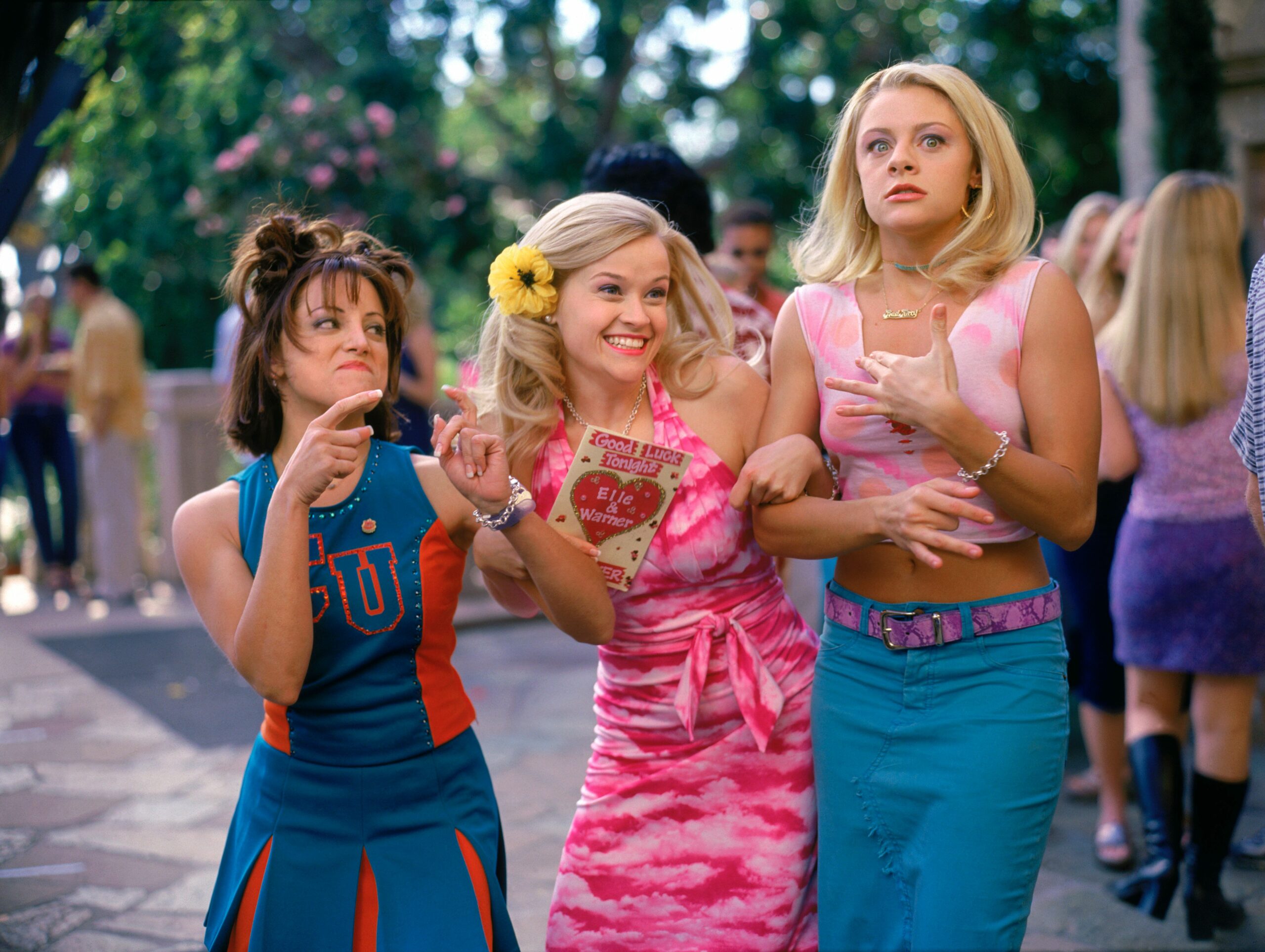Elle Woods was just like other girls and she taught a generation of women and girls that being feminine and smart are never mutually exclusive. Photo courtesy of ELLE Magazine.
SADIA KHATRI | OPINION COLUMNIST | sskhatri@butler.edu
I am just like other girls.
Many women and girls are familiar with the social phenomenon of not being like “other girls.” It is an outdated and sexist trope that is often found in a lot of different types of media, where the character who is not like other girls typically has less “feminine” interests. She might not wear makeup. She might not like wearing traditionally feminine clothing. She might not listen to trendy pop music. She is generally depicted as being different from the typical woman or girl — and that is what makes her better.
This trope is harmful, and there is a lot of misogyny — both internalized and explicit — that is involved with it. Women and girls are multifaceted, and a binary differentiation of either being like or unlike other girls is not even slightly close to being productive or beneficial.
Teagan Morrison, a junior theatre and English major, noted that it can be particularly hurtful and offensive when men refer to women as being different.
“Men mean it typically as a compliment,” Morrison said. “But, I don’t think I know a single woman who takes it as a compliment.”
Making the claim that someone is unlike other women or girls — or claiming that you are not like other girls — is inherently problematic. It also raises a damaging question about whether something is fundamentally wrong with other women and girls. There is a lot of misogyny at play when we draw conclusions or make generalizations like this. It should not be a problem if something is traditionally feminine.
The value of something does not decrease if more women like it.
Junior English major Miranda Emerick noted that “not-like-other-girls” sentiment often has an aspect of hatred involved.
“I think some of it is trying to feel taller,” Emerick said. “When girls say that about themselves, it’s almost like [they are] trying to feel taller and above the girls that are into makeup and dresses and want to be around kids … [It is a] dislike of the feminine things because of the way our society is set up to favor … things that are traditionally masculine.”
Moreover, being like other girls does not mean that you need to have traditionally or stereotypically feminine interests. Being like other girls means accepting that being aligned and associated with women, girls and feminine-presenting people is okay. It is about being confident and proud of that. You could have little to no interests that are perceived as traditionally feminine and still be like other girls.
Morrison emphasized how people are a lot more similar than they may think, and how important it is to remember that we are all like other women and girls.
“I think women are so similar and so different,” Morrison said. “Every single person is so similar and so different. A man saying [‘you’re not like other girls’] is just kind of a power trip … it’s like, [he wants] to separate you from all these other people. And I think women saying ‘I’m not like other girls’ is kind of doing the same thing, just putting other women down just to make themselves feel better.”
If you have interests that are traditionally not very feminine, chances are that there are certainly other women and girls out there that also have those interests. A person’s femininity, or lack thereof, does not dictate their gender or worth.
Junior biology major Alea Alvi presents more androgynously, and they think that having more masculine interests does not take away from their feminine side.
“I can speak as someone who presents as a cis[gender] woman with some pretty masculine interests, like video games and coding,” Alvi said. “That doesn’t make me any less of a feminine person. That doesn’t make me any less in touch with my feminine side. It’s just another part of who I am.”
Women and girls experience enough misogyny and sexism for all sorts of reasons, but we do not need to exacerbate that by choosing to exclude ourselves from other women and girls.
Emerick emphasized that there is a lot of misogyny at play when it comes to the portrayal of girls who are not like other girls.
“I think it’s more just about misogyny because at the end of the day, who cares what anybody is into?” Emerick said. “Who cares if a girl likes to do traditionally masculine things? Who cares if a guy likes to do traditionally feminine things? At the end of the day, they’re all just things to do, and they’re not inherently good or bad to be doing depending on who you are.”
In the era of the Barbie movie, I have developed an even deeper appreciation for who I am as a woman. I feel a stronger connection to the women and girls around me, and I feel a sense of nostalgia for the young girl I once was. Where I once thought that I would have to dull the feminine aspects of my personality and life in order for people to take me seriously, I now embrace those aspects more than I ever have.
I like when my friends and I are in the car and the windows are down and the sun is shining and we are all singing along to Taylor Swift and someone is using the side-view mirror of the car to check their makeup and someone else is giggling about a text they received and all of us are so happy to be in each other’s presence and we are so happy to just be women and girls in early adulthood.
I am just like other girls, and I would not have it any other way.



